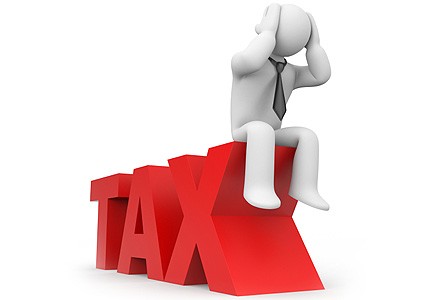Everything you need to know about the Capital Gains Tax
Post on: 16 Март, 2015 No Comment

What is Capital Gains Tax (CGT)?
Capital Gains Tax is a tax chargeable on the whole of a gain which accrues to a company or an individual on or after 1st January, 2015 on the transfer of property situated in Kenya, whether or not the property was acquired before 1st January, 2015.
Is CGT a new tax?
It is not a new tax. It was first introduced in Kenya in 1975 but later suspended in 1985 and has now been re-introduced effective 1st January, 2015.
Why was the tax suspended in 1985?
The tax was suspended then to encourage and incentivise investments in the Stock Market and real estates which was less vibrant.
What are some of the cited justification for the CGT tax?
- Equity and fairness in fiscal policy in line with the new constitution.
- Economic efficiency as investors are drawn to invest in CGT related assets than Income Tax related assets
- Minimisation of misallocation of investments resources due to non taxed capital gains
- Minimisation of tax avoidance and tax evasion
What is the rate of tax for CGT?
The rate of tax is 5% of the net gain. It is a final tax and cannot be offset against other income taxes.
Who is liable to pay the tax?
The tax is to be paid by the person (resident or non-resident) transferring the property, that is, the transferor. The transferor can either be an individual or a corporate body.
What constitutes a transfer?
Pursuant with paragraph 6 (1) of ITA a transfer takes place:
- Where a property is sold, exchanged, conveyed or disposed of in any manner whatsoever (including by way of gift), whether or not for consideration
- On the occasion of loss, destruction or extinction of property whether or not compensation is received
- On the abandonment, surrender, cancellation or forfeiture of, or the expiration of rights to property including the surrender of shares or debentures on the dissolution of a company.

How do you determine the net gain?
The net gain is the excess of the transfer value over the adjusted cost of the property that has been transferred. It is this excess that is subjected to tax at 5%.
The Transfer value of the property is the amount or value of consideration or compensation for transfer of the property less incidental costs on such transfer.
The Adjusted cost is the sum of the cost of acquisition or construction of the property; expenditure for enhancement of value and/or preservation of the property; cost of defending title or right over property, if any; and the incidental costs of acquiring the property.
The adjusted cost shall be reduced by any amounts that have been previously allowed as deductions under Section 15(2) of the Income Tax Act.
What is the due date/ tax point?
It is a transaction based tax and should therefore be paid upon transfer of property but not later than the 20th day of the month following that in which the transfer was made.
How is the tax to be declared?
The taxpayer will do a self-assessment to determine the gain upon which tax is computed. The computations are subject to Commissioner’s confirmation of correct gain as the basis of tax computation.
Upon transfer of property the transferor shall complete the relevant form (CGT 1) as appropriate and compute and pay the tax thereon.
KRA has indicated that it is developing a specific form (Form CGT 2) for declarations relating to Marketable Securities.
What happens when a loss is made?
The loss may be carried forward to be offset/deducted against a gain of a similar nature (that is, a capital gain) at a future date.
Is PIN required for transmission of CGT?
An investor must provide a certified copy of a PIN to the tax agent or the stockbroker with which if the tax is deducted at source the broker shall include in the CGT Form 2 during submission to KRA.
What documents/information will be required?
- Completed CGT form by the seller.
- Copy of Sale/Transfer Agreement of the property.
- Proof of the incidental costs related to the acquisition and transfer of the property.
- A copy of the title deed or ownership document for the property
- Report from a registered valuer for property transactions between related parties
- Any other document/information that the Commissioner may require
Who is the tax collecting agent of CGT?
As of now KRA is yet to clarify the collecting tax agent. KRA guidelines on one hand indicate that the tax payer in this case the investor will self-assess tax and pay the same to KRA contradicting paragraph 18 and 20 of Part II of the Eighth Schedule of ITA as read with section 35(5) of ITA.
Where can I access information on CGT?
- Guidelines on Kenya Revenue Authority (KRA) website (www.kra.go.ke )
- Contacting KRA customer center
- Public notices
- You tax advisors or agents














